Going out into the world can be a bit overwhelming. There are many important rules, additional expectations, and a lot more signage to pay attention to. Even though these changes seemed strange at first, they are in place to keep you safe and must be taken seriously.
If you do venture out, please make sure that you do so in accordance with the COVID-19 public health measures and advice from the Government of Ontario.
Here are eight things you can expect to see at local businesses to keep you safe in Ontario's Southwest.
1. Proof of Vaccination and Contact Tracing
As of March 1, 2022, businesses and organizations aren't required to check proof of vaccination. However, some may choose to require proof of vaccination upon entry. Before visiting an establishment, make sure to check their website or social media to see their COVID-19 safety procedures and come prepared.
If you are asked for your enhanced COVID-19 vaccine certificate, you can download it by visiting https://covid-19.ontario.ca/get-proof/, or call the Provincial Vaccine Contact Centre at 1-833-943-3900 to have your vaccine certificate mailed.
Contact tracing is when you provide your name, phone number, and respond to the COVID-19 pre-screening questions prior to entering an establishment. The business will only use this information so that they can contact you if another customer within your vicinity tests positive for COVID-19.
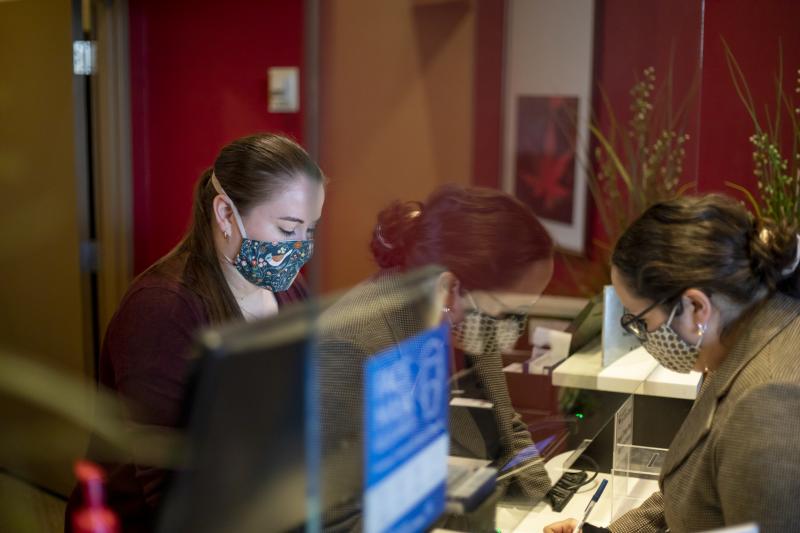
2. Masks
By now you know that it's mandatory to wear masks in all indoor public areas and when you can’t keep two metres distance from someone that isn’t in your household outdoors. You can learn more about the best way to use face coverings from the Ontario government’s website.
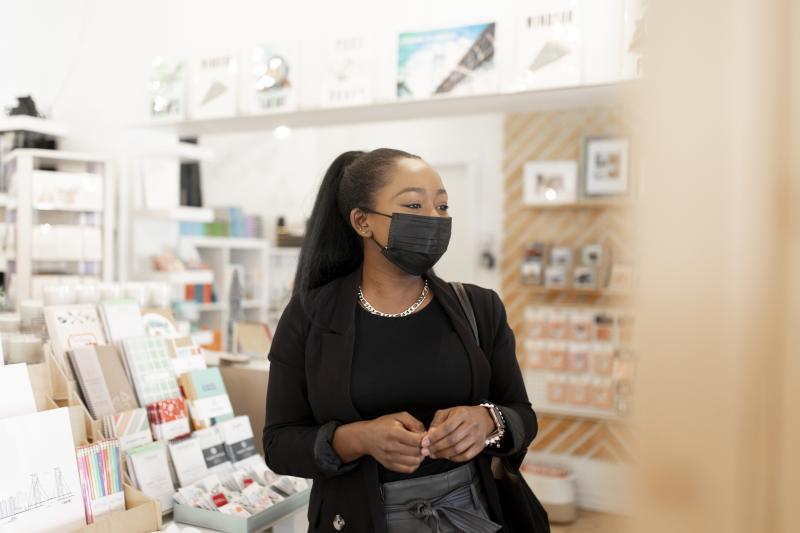
3. Social Distancing
You should continue to keep 2 metres from other guests. Tables are spread out, lines have indications showing people where to stand, and there are arrows in tight aisles to tell people which way to walk to ensure that everyone is walking in the same direction. These rules keep you 2 metres away from other people whenever physically possible and should be respected.
So, when you are walking down the sidewalk, and someone moves to the other side of the street, it isn’t personal. Staying 2 metres from people outside of your household helps limit the spread of the virus. Please pay attention to signage and respect others by giving them the space that they need. You can learn more about physical distancing from the Ontario government’s website.
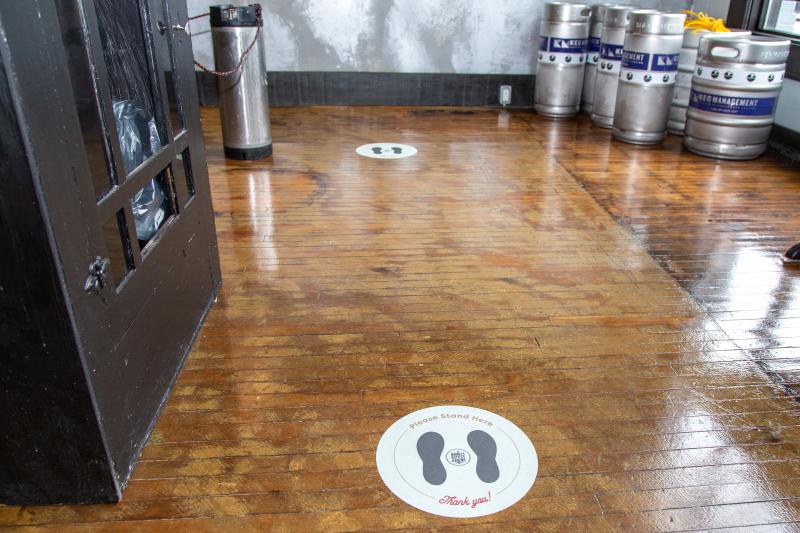
4. Sanitation Procedures
Don't pass by the hand sanitizer when you are entering an establishment. This isn’t because the operators think you have bad hygiene. Again, they are trying to keep you, your family, and their employees safe by reducing the risk that you are carrying a virus on your hands.
Also, since anything that you touch will need to be thoroughly cleaned after you leave, please pay attention to signage that tells you where to put anything you've used. That way the items can be sanitized before the next person uses them. Even if you don’t feel sick, you could be carrying a virus and not know it. Cleaner is always safer.
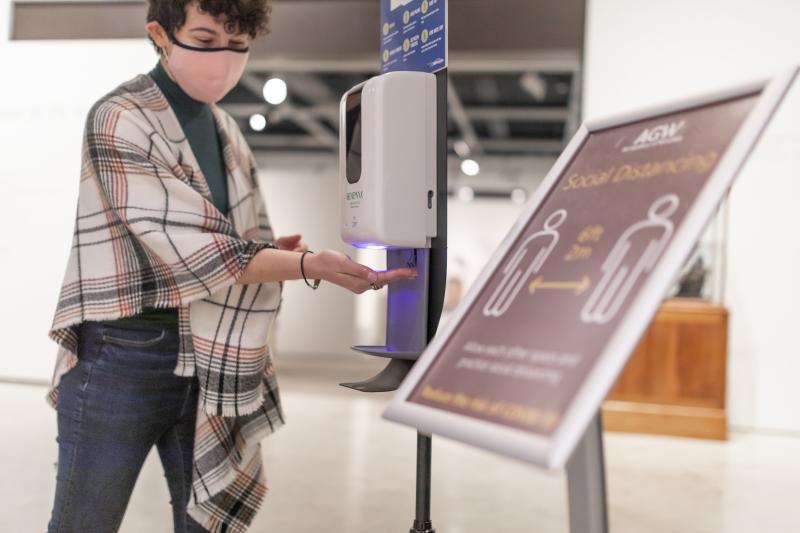
5. Barriers
Not every business has barriers, but if you see them, please make sure to stand behind them when interacting with the person serving you.
Being behind a barrier and having a mask on may make it more difficult to be heard and to hear the server/cashier. Please be patient, keep your mask on, and make sure that you are speaking clearly to ensure that you are understood.
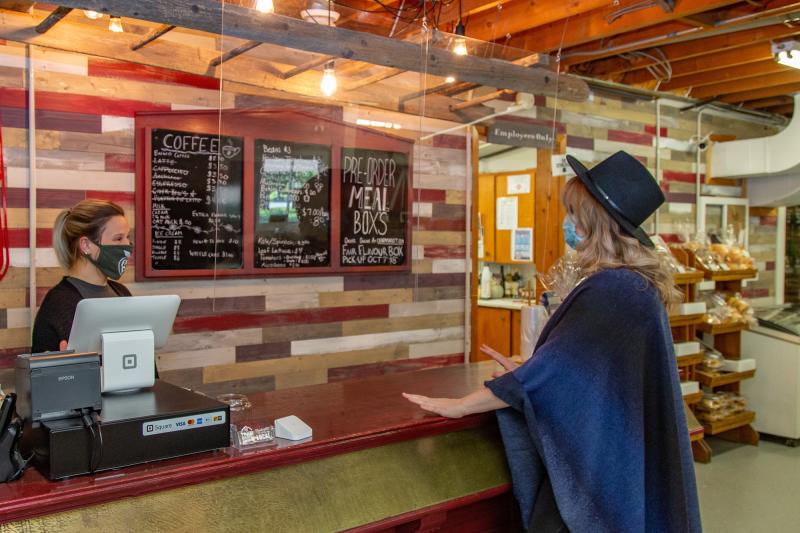
6. Advance Ticketing and Reservations
It’s normal to see line ups to get into buildings and public spaces. Expect there to be a line up and plan accordingly. And always be patient and kind to others. Check online before you head out to see if there are virtual line-ups, advance ticketing, or time-slot reservations that you should be aware of.
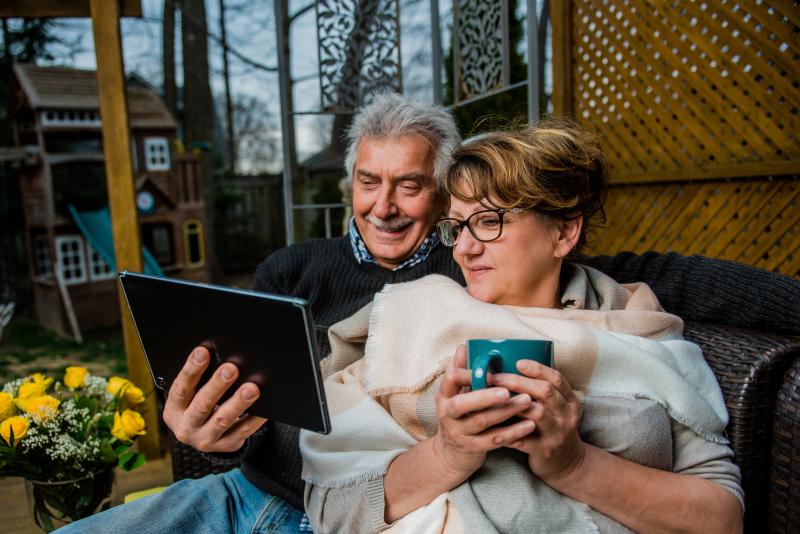
7. Contactless Pay, Menus, and Shopping
Please limit your use of cash and use contactless methods of payment. Pre-paying for your order is always a great way to limit contact points. Or you can use the “tap” feature on your credit/debit card.
Many businesses are offering online shopping and gift cards so that you can support your favourite small businesses from the comfort of your own home. Retail operators may have online shopping with shipping to your home available or curb-side pick-up. And restaurants often offer take-out and delivery options.
Many restaurants will ask patrons to access their menus virtually by scanning a QR code with their phones. So, if you see people sitting at a table together all on their phones, they are likely just reading the menu and not necessarily ignoring each other. This reduces the risk of exposure by limiting frequent touch points.
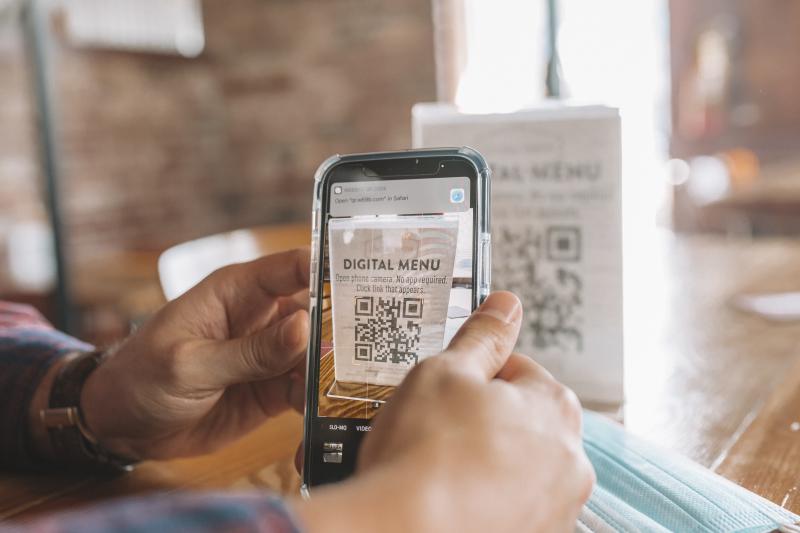
8. Remember that People are Doing Their Best
Please remember that this is a difficult time for many. Businesses are doing their absolute best to keep you, your family, and their employees safe. Please be kind and patient with them. Remember that it’s a stressful time for everyone and everyone is tired of it. Instead of complaining, consider thanking them for keeping you safe.
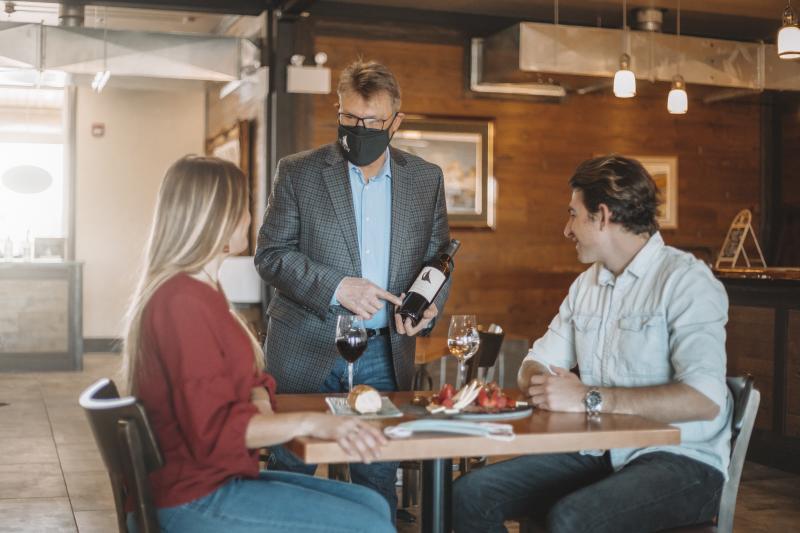
Please note that getting vaccinated is currently the top recommendation from the Ontario government to reduce your risk of contracting or spreading COVID-19. Here is a quick summary of how you can keep yourself and others safe:
- Get vaccinated and get your booster shot.
- Wear a face covering or mask when you are in indoor spaces open to the public.
- Stay home if you feel unwell (not related to getting a COVID-19 vaccine in the last 48 hours).
- Avoid crowds and maintain physical distance (at least two metres) from people you do not live with.
- Wash your hands often with soap and water or use alcohol-based hand sanitizer.
- Sneeze and cough into your sleeve.
- Avoid touching your eyes, nose or mouth.
- Avoid contact with people who are sick.
Since recommendations are subject to change, please always check the government of Ontario website for updates related to COVID-19 best practices.
Questions? For public inquiries, please contact the Provincial Vaccine Contact Centre at 1-833-943-3900 (TTY for people who are deaf, hearing-impaired or speech-impaired: 1-866-797-0007).
